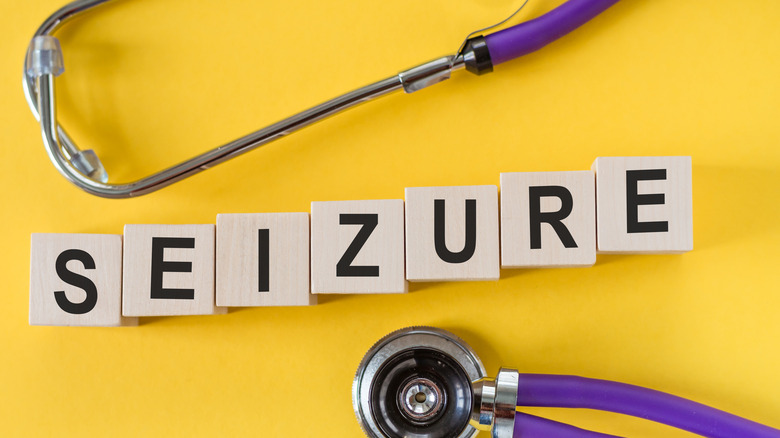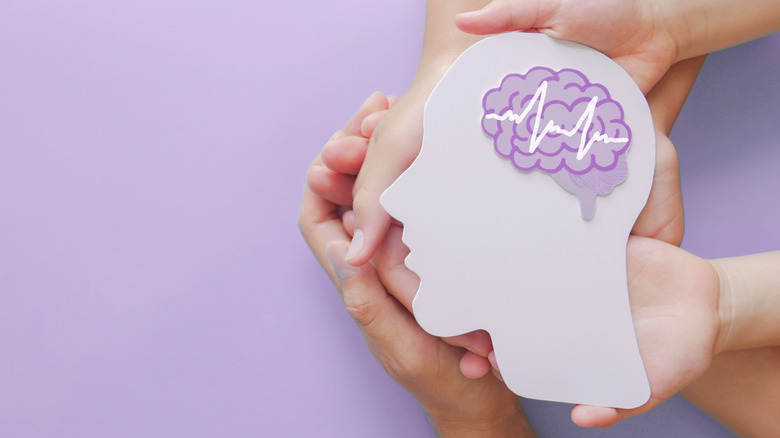What Happens To Your Body When You Have A Seizure
Watching a loved one have a seizure or experiencing one of your own can be extremely frightening. There's an association between seizures and epilepsy, but the World Health Organization (WHO) clarifies that a single seizure doesn't necessarily indicate epilepsy. A formal diagnosis of epilepsy is given when a person experiences at least two unexpected seizures. There are many contributors to epileptic seizures, such as a tumor or infection in the brain, genetic syndromes, a stroke, or head injuries. Many seizures can be managed with medication, as the WHO reports that 70% of epileptic individuals who are treated with anti-seizure medications could eventually become free of seizures.
Besides being connected to epilepsy, the Cedars-Sinai Medical Center explains that it's also possible for non-epileptic seizures (NES) to occur. These may be a result of stress, being in an accident, or having physical conditions like diabetes or heart disease. NES can even be triggered by being bullied or abused. Additionally, people with psychological conditions such as depression and anxiety are more likely to experience NES. NES can be unresponsive to anti-seizure medication, and psychotherapy is a common treatment option.
In order to treat seizures and improve the lives of those who struggle with them, identifying what happens to the body during a seizure is important for medical professionals. Having a clear understanding of what goes on during a seizure may also help you care for someone having one, or know what to expect if you experience one yourself.
What's happening to the body during a seizure?
Seizures are sometimes described as "electrical storms in the brain" (per Epilepsy Foundation). According to the Foundation, there are stages of a seizure that not everyone will experience, yet are important to recognize. Some initial warning signs that can signal the beginning of a seizure are categorized as "prodrome" and "aura." Prodrome describes sensations and changes in behavior that some individuals experience before the onset of a seizure. This phase is worth noting as it can help someone prepare for a seizure by taking their medication or using a rescue treatment. The aura phase is another warning signal that is considered part of the seizure.
Before a seizure, someone may experience déjà vu, racing thoughts, panic, blurred vision or loss of vision, and unusual smells, sounds, and tastes. They can become lightheaded, have nausea and a headache, or experience numbness or tingling in their body. On the other hand, they may even experience pleasant feelings.
During a seizure, some symptoms include a complete loss of awareness ("blacking out"), confusion, distractibility, forgetfulness, losing the senses of vision and hearing, feeling detached from the body, or having hallucinations. Someone can have trouble speaking to others, may drool and have difficulty breathing, have tremors and convulsions, and their muscles can become rigid. They may also lose consciousness.
If you or someone you love experiences seizures, the Epilepsy Foundation wants to remind you that you aren't alone, and that there is social support available for you.


